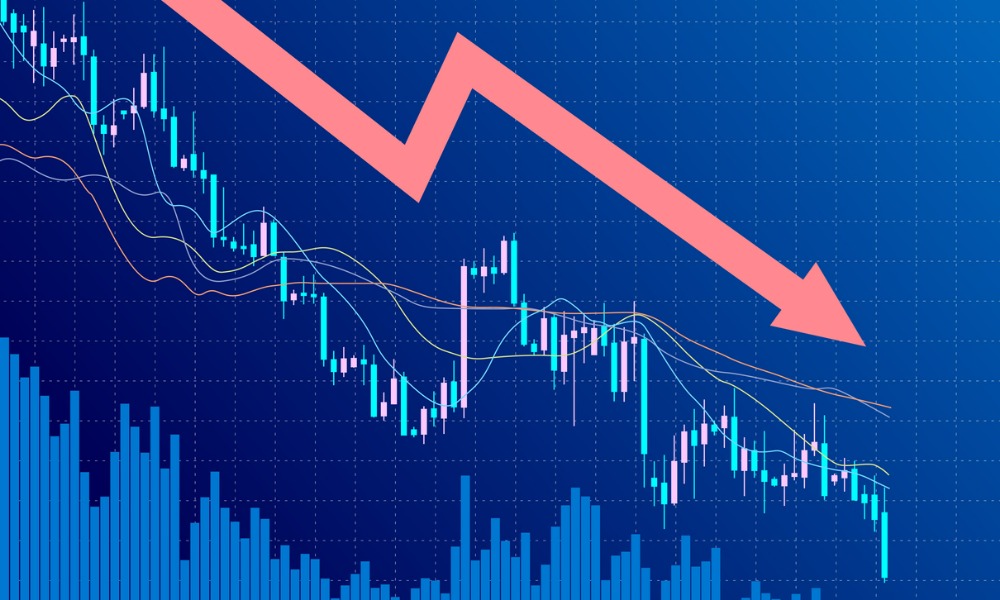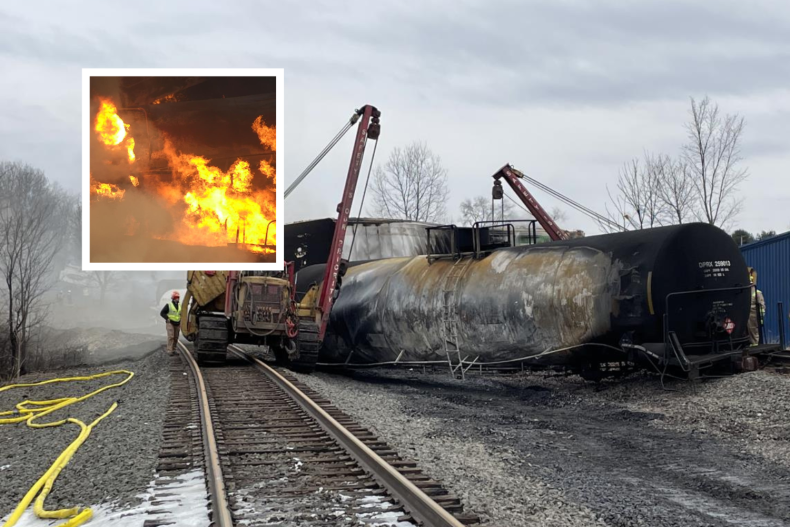Beyond BMW And Porsche: The Broader Implications Of The China Auto Market Slowdown

Table of Contents
Global Supply Chain Disruptions
The Chinese auto market's slowdown significantly impacts global supply chains. Reduced demand from China directly affects component manufacturers worldwide, creating a ripple effect throughout the industry.
Impact on Component Suppliers
Reduced orders from Chinese automakers lead to lower production levels and potential job losses for component manufacturers across the globe. This impacts various sectors:
- Reduced demand for semiconductors, batteries, and other crucial components: The decreased production of vehicles in China directly translates into lower demand for essential components, leading to excess inventory and potential price reductions for suppliers.
- Potential price wars and increased competition among suppliers: With reduced demand, component suppliers face intensified competition, potentially leading to price wars and reduced profit margins. This necessitates strategic adjustments to remain competitive.
- Shifting production strategies and geographical diversification by suppliers: Many component manufacturers are reevaluating their reliance on the Chinese market and diversifying their production to other regions to mitigate future risks associated with market fluctuations.
Logistic Challenges
Decreased automotive exports from China create significant bottlenecks and affect global shipping routes, impacting delivery times and costs for automakers worldwide.
- Increased freight costs and shipping delays: The reduced volume of automotive goods from China doesn't necessarily translate to lower shipping costs. In fact, imbalances in shipping containers and overall logistics can lead to increased costs and extended delivery times.
- Potential shortages of certain vehicle parts in other markets: Disruptions in the supply chain can lead to shortages of specific components in other countries, potentially delaying vehicle production and impacting sales.
- Re-evaluation of global logistics strategies by automakers: Automakers are forced to re-evaluate their logistics strategies, exploring alternative sourcing and shipping routes to minimize reliance on China and enhance supply chain resilience.
Impact on Technological Advancement
China's role as a major driver of electric vehicle (EV) innovation is undeniably affected by the market slowdown. Slower growth in the Chinese EV market impacts research and development (R&D) globally, slowing the pace of technological advancements.
Slower EV Adoption Rates
A slowdown in the Chinese EV market, the world's largest, dampens the global momentum towards electric vehicle adoption. This has several consequences:
- Reduced investment in EV battery technology and charging infrastructure: With decreased demand, investment in crucial EV technologies like battery production and charging infrastructure may be curtailed, hindering the broader adoption of EVs globally.
- Slower development and rollout of new EV models: Automakers may slow down the development and launch of new EV models due to decreased market demand in China, a key market for testing and launching new technologies.
- Potential impact on global emission reduction targets: Slower EV adoption rates globally could negatively impact the achievement of global emission reduction targets and climate goals.
Reduced Investment in Autonomous Driving Technologies
Less funding in the Chinese auto market translates into less investment in autonomous driving R&D, a sector where China has been a significant player.
- Delayed progress in self-driving technology development: Reduced investment impacts the pace of innovation and development in autonomous driving systems, potentially delaying their widespread adoption.
- Reduced competition in the autonomous vehicle sector: The slowdown could lead to a less competitive landscape in the autonomous vehicle sector, potentially slowing overall progress.
- Impact on the timeline for widespread adoption of autonomous vehicles: The reduced investment and slower development could significantly impact the timeline for the widespread adoption of autonomous vehicles globally.
Economic Implications Beyond the Automotive Sector
The automotive industry slowdown in China triggers ripple effects in related industries and the broader Chinese economy, extending beyond just car manufacturers.
Job Losses and Economic Slowdown in China
Reduced production and sales in the automotive sector lead to job losses across the entire automotive value chain, impacting China's overall economic growth.
- Decreased employment in manufacturing, sales, and related services: The slowdown affects not only factory workers but also sales staff, dealerships, and related service industries.
- Reduced tax revenue for the Chinese government: Lower sales and production lead to reduced tax revenue for the Chinese government, impacting its ability to fund various public services and initiatives.
- Potential for broader economic instability in China: The automotive sector's significant contribution to the Chinese economy means a slowdown can contribute to broader economic instability.
Global Economic Uncertainty
The Chinese auto market's significance in the global economy means its slowdown contributes to broader economic uncertainty.
- Impact on investor confidence and global financial markets: The slowdown creates uncertainty among investors, potentially impacting global financial markets and investment decisions.
- Potential for decreased international trade and investment: The decreased economic activity in China can lead to decreased international trade and investment, further impacting global economic growth.
- Heightened risk for global recession: The interconnectedness of the global economy means that a significant slowdown in China's auto market can contribute to an increased risk of global recession.
Conclusion
The slowdown in China's auto market, while initially perceived as affecting primarily luxury brands like BMW and Porsche, carries significant and far-reaching implications. The ripple effects extend to global supply chains, technological advancements, and overall economic stability. Understanding the broader implications of this slowdown is crucial for automakers, component suppliers, investors, and policymakers. Staying informed about developments in the China auto market and its global impact is paramount for navigating the evolving automotive landscape. Therefore, continuously monitoring the China auto market slowdown and its related news is vital for strategic decision-making. Understanding the nuances of the China auto market slowdown is critical for successful navigation of the current economic climate.

Featured Posts
-
 Sante Et Economie L Impact Positif Du Dry January Et De La Tournee Minerale Sur Le Marche Du Sans Alcool
Apr 23, 2025
Sante Et Economie L Impact Positif Du Dry January Et De La Tournee Minerale Sur Le Marche Du Sans Alcool
Apr 23, 2025 -
 Ohio Train Derailment Aftermath Prolonged Toxic Chemical Presence In Buildings
Apr 23, 2025
Ohio Train Derailment Aftermath Prolonged Toxic Chemical Presence In Buildings
Apr 23, 2025 -
 Jackson Chourio Fuels Brewers Win With Homer And 5 Rbis Against Rockies
Apr 23, 2025
Jackson Chourio Fuels Brewers Win With Homer And 5 Rbis Against Rockies
Apr 23, 2025 -
 Chto Nuzhno Znat O Chistom Ponedelnike 3 Marta 2025 Goda Velikiy Post I Ego Traditsii
Apr 23, 2025
Chto Nuzhno Znat O Chistom Ponedelnike 3 Marta 2025 Goda Velikiy Post I Ego Traditsii
Apr 23, 2025 -
 Should Investors Worry About Stretched Stock Market Valuations Bof A Weighs In
Apr 23, 2025
Should Investors Worry About Stretched Stock Market Valuations Bof A Weighs In
Apr 23, 2025
